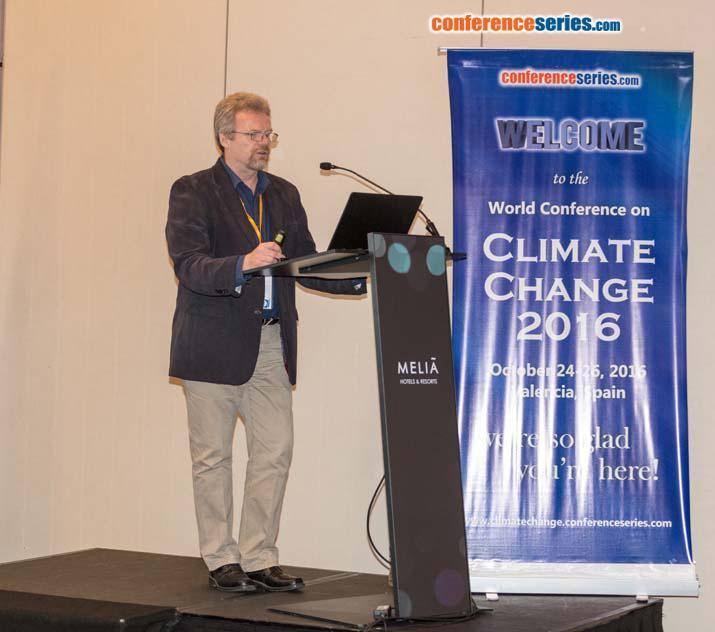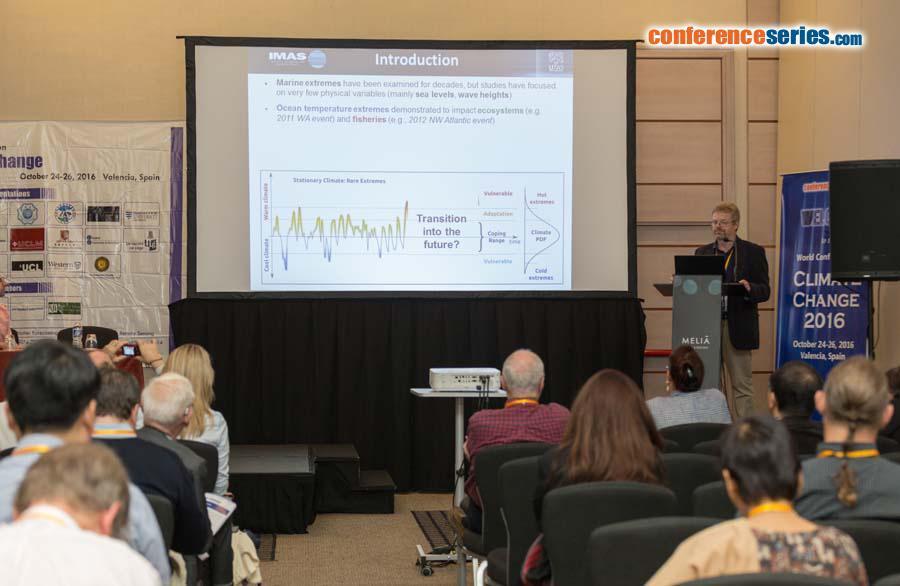
Neil Holbrook
University of Tasmania
USA
Title: Marine heatwaves: Definitions, drivers, and global trends
Biography
Biography: Neil Holbrook
Abstract
Adverse impacts of marine heatwaves (MHWs) include shifts in marine species ranges, local extinctions and economic impacts on seafood industries. Global patterns of MHWs suggest that their magnitude, timing and distribution may be driven by known modes of climate variability. Importantly, drivers represent a combination of both local and remote processes — with the remote, larger-scale processes offering the potential for MHW predictability. Here we have (1) undertaken a systematic and comprehensive search of observed MHW events reported in the peer-reviewed literature, (2) synthesised and critically assessed reported details of the characteristic drivers and oceanographic processes that caused them, classified by ocean climate region and time scale under a common framework, and (3) performed a meta-analysis of these events based on high-resolution global sea surface temperature records – providing unified estimates of MHW event intensity, duration and spatial extent. We have also used historical records of satellite observations, in-situ measurements, and monthly in-situ SSTs to reveal significant global trends in marine heatwaves over the past century. Both the frequency and duration of MHWs have doubled since 1900, resulting in a four-fold increase in the global number of annual MHW days. These increases were generally consistent with average sea surface warming. Continued increases in MHWs, as anticipated with accelerated warming of the Earth during the 21st century, will have serious implications for marine ecosystems, biodiversity and major industries fisheries, aquaculture, and tourism.
Speaker Presentations
Speaker PDFs
Speaker PPTs Click Here




